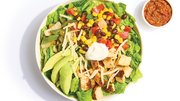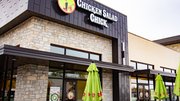News
Expert urges operators to plan 2015 purchasing now
A purchasing forecast should clearly define the components that drive commodity prices, including geopolitical events, weather, planted acres of farmland, crop yields and changes in the import/export market, among other factors.
October 6, 2014
With Q4 rapidly approaching and commodity prices expected to remain volatile in 2015, the vice president of restaurant supply chain co-op SpenDifference is urging operators to start planning their purchasing needs for next year now.
"Understanding the impacts before they occur allows operators to take action with multiple approaches," said DeWayne Dove in a company press release. "Key strategies would be increasing menu prices, reducing portion size, altering item specifications and changing the menu mix."
A purchasing forecast should clearly define the components that drive commodity prices, including geopolitical events, weather, planted acres of farmland, crop yields and changes in the import/export market, among other factors.
"Once completed, all of the components must be monitored on a weekly basis to account for any major swings in costs," Dove said. "Restaurant operators need to react quickly and identify other menu opportunities, such as offering limited-time poultry entrees in light of rising beef prices.
Some tips from Dove:
- Complete forecasts and strategies in Q3 to allow time for research, menu pricing adjustments and other changes.
- Be as specific as possible in all product categories.
"Understand your budget and take risk out when you can," said Dove. "Proper risk management is a must. Lock in your positions to flat-line your commodity costs and stabilize menu prices for the year."
 ChatGPT
ChatGPT Grok
Grok Perplexity
Perplexity Claude
Claude












